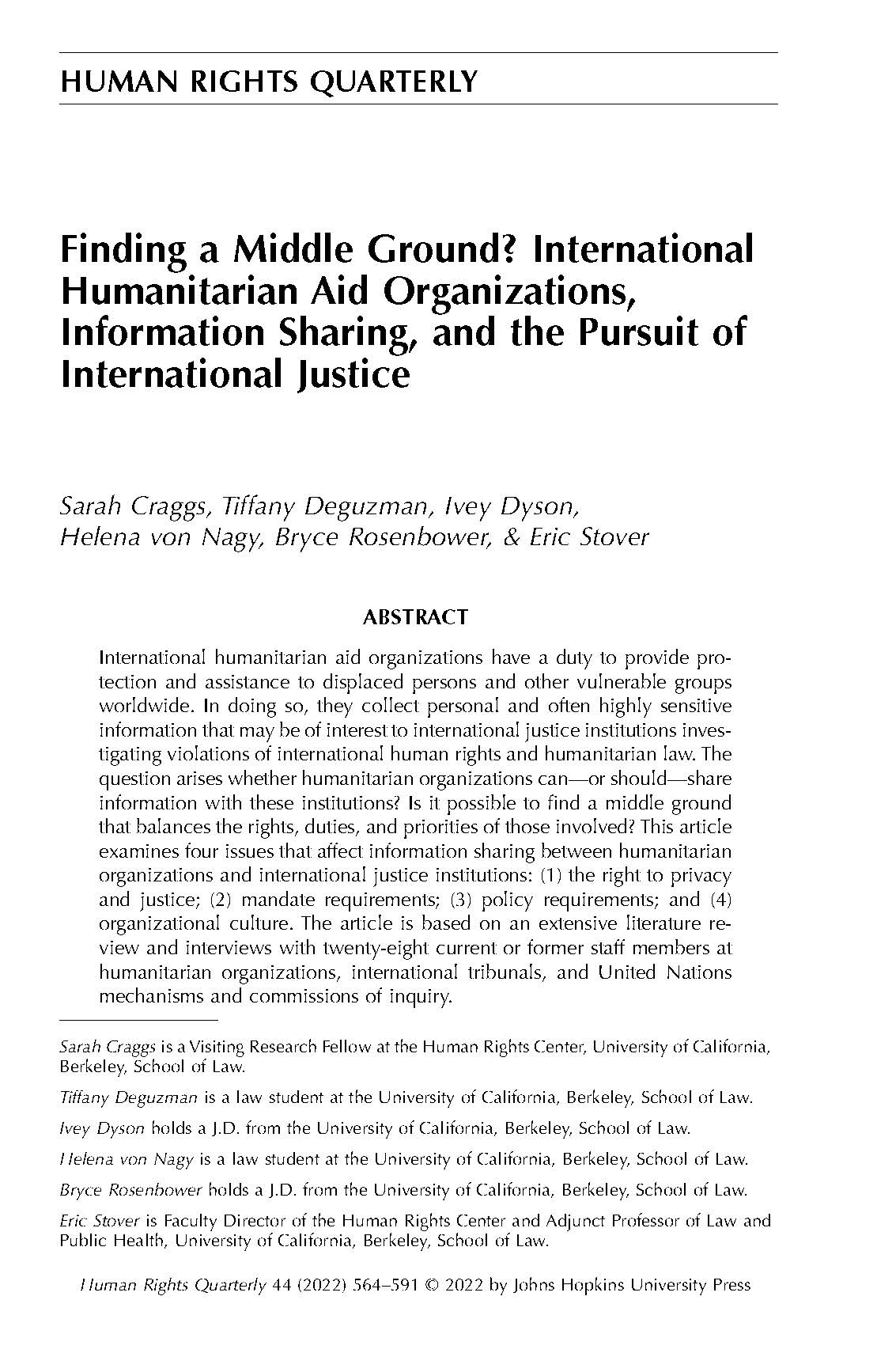Finding a Middle Ground? International Humanitarian Aid Organizations, Information Sharing, and the Pursuit of International Justice
Download PDFSummary
International humanitarian aid organizations have a duty to provide protection and assistance to displaced persons and other vulnerable groups worldwide. In doing so, they collect personal and often highly sensitive information that may be of interest to international justice institutions investigating violations of international human rights and humanitarian law. The question arises whether humanitarian organizations can — or should — share information with these institutions? Is it possible to find a middle ground that balances the rights, duties, and priorities of those involved? This article examines four issues that affect information sharing between humanitarian organizations and international justice institutions: (1) the right to privacy and justice; (2) mandate requirements; (3) policy requirements; and (4) organizational culture. The article is based on an extensive literature review and interviews with twenty-eight current or former staff members at humanitarian organizations, international tribunals, and United Nations mechanisms and commissions of inquiry.
